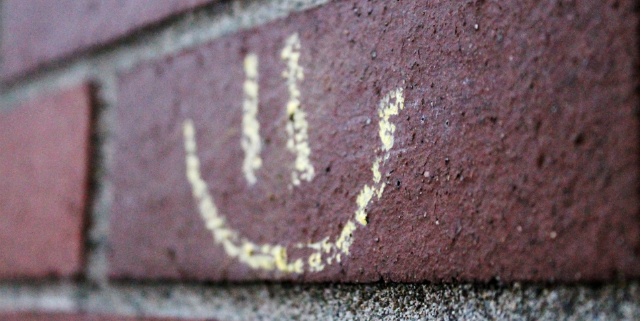There are probably few people out there that haven’t experienced this in some way. You have a stressful day, a lot to do tomorrow, or even random reflections about past events that you just can’t kick before bed. You may even lose hours of rest regularly to negative thoughts that persist. It’s well-established in psychology that ruminating on the past or unpleasant thoughts is a risk factor for insomnia and even mood disorders like depression. Some recent research has been focusing on how people can take control and purposefully redirect their repetitive or intrusive negative thoughts. From your bedtime to how you cope with stress, here are five helpful ways you can kick negative thoughts to get better sleep.
1. Head to bed earlier
I one recent study conducted by Binghamton University, researchers looked at participants’ propensities to worry, ruminate, or stress (all gauges of repetitive negative thinking) and at their sleep habits. They found that people who preferred to go to sleep late (evening types) had higher levels of negative thoughts compared to early sleepers (morning types). The same was true for people who slept for shorter periods of time overall. If you aren’t getting at least seven hours of sleep each night or you tend to keep late hours, this means it could prove helpful to shift your sleep schedule earlier. Try gradually moving your bedtime up in 15 to 30 minute increments to create a schedule that allows you to get enough sleep. Keeping fairly consistent bedtimes throughout the week and practicing some of the other relaxation techniques below can make the transition a little easier.
2. Talk positively to yourself
One method of countering negative thoughts is to practice positive self-talk, popular with cognitive behavioral therapists. Essentially, negative self-talk involves habits like focusing on the cons of a situation and not the pros, personalizing blame, anticipating the worst, and polarizing between good and bad with no in-between. The idea is that when you catch yourself dwelling on negative thoughts, you consciously work to assess its validity and move on. Instead of obsessing over things that went wrong, look for solutions to the problem or do something to refocus your attention. (Positive affirmation, a prayer, or exercise, maybe.) Thinking about things you are grateful for can also be mood-booster, and one study found higher levels of gratitude correlated with better sleep.
3. Use guided relaxation or visualization
Guided relaxation can be helpful for clearing your mind and taking the focus off of negative thoughts. Essentially, a therapist or a recording guides you through a step-by-step process as you follow along. There are a few different types of guided relaxation program, and different types may feel more helpful to you than others. Traditional guided relaxation will work through relaxing your body and focusing on breathing. Guided visualization/imagery has you visualize a scene to occupy your attention. Progressive muscle relaxation takes a more physical approach of gradually tensing and relaxing different muscle groups. These types of programs can be done with a professional therapist, or you can also find numerous free videos, smartphone apps and websites with helpful resources. The Dartmouth College Health and Wellness page is one good resource with a variety of free relaxation downloads.
4. Breathe with purpose
Breathing techniques are a well-established way to promote relaxation and minimize stress. Similar to guided relaxation, the idea is to follow a set pattern that places the focus on your physical body and off of the thoughts that are bothering you. Breathing also affects heart rate, which can help you feel calmer. These techniques can be helpful for relaxing in bed, but can also be used anywhere whenever you feel stressed:
Diaphragmatic breathing (breathing deeply through your stomach and exhaling slowly) Equal breathing (inhaling and exhaling for the same amount of time; counts of 4-6 seconds) Resistance breathing (breathing in and out via pursed lips or your nose) Breath moving (as you inhale, imagine you are moving the breath to the top of your head; as you exhale, move the breath to base of your spine)
5. Relax to music
Music relaxation is another way to clear stress and can help you focus your attention or clear your mind of negative thoughts. A recent review of several music therapy studies concluded that music therapy helped people with sleep disorders when used consistently. There are different approaches, but actual music therapy is performed by licensed professionals in a clinical setting for specific health/wellness goals. However, music can also be used for self-relaxation at home. If you prefer to go it alone, try some calming music without lyrics such as nature tracks, new age instrumentals, or classical music. Put the songs on, and focus on the sounds and rhythms, keeping your breathing calm. You could also listen to upbeat songs you like and sing along or lose yourself in the lyrics to change your mindset. One study from the British Academy of Sound Therapy tested several songs and identified 10 that proved very relaxing, so that playlist might be a good starting place as well.
The habit of ruminating or mulling over negative thoughts isn’t always an easy one to kick. These five DIY relaxation strategies can be much more helpful than simply trying to suppress thoughts, which studies have shown time again to be ineffective. Practice different methods to see what meshes best with your personality, and place the focus on relaxing your body rather than on banishing the negative thoughts themselves. If intrusive thoughts are having a significant impact on your sleep quality or life, reaching out to a trained therapist is also a good option. Have a helpful relaxation tip or strategy that works for you? Share in the comments below.

